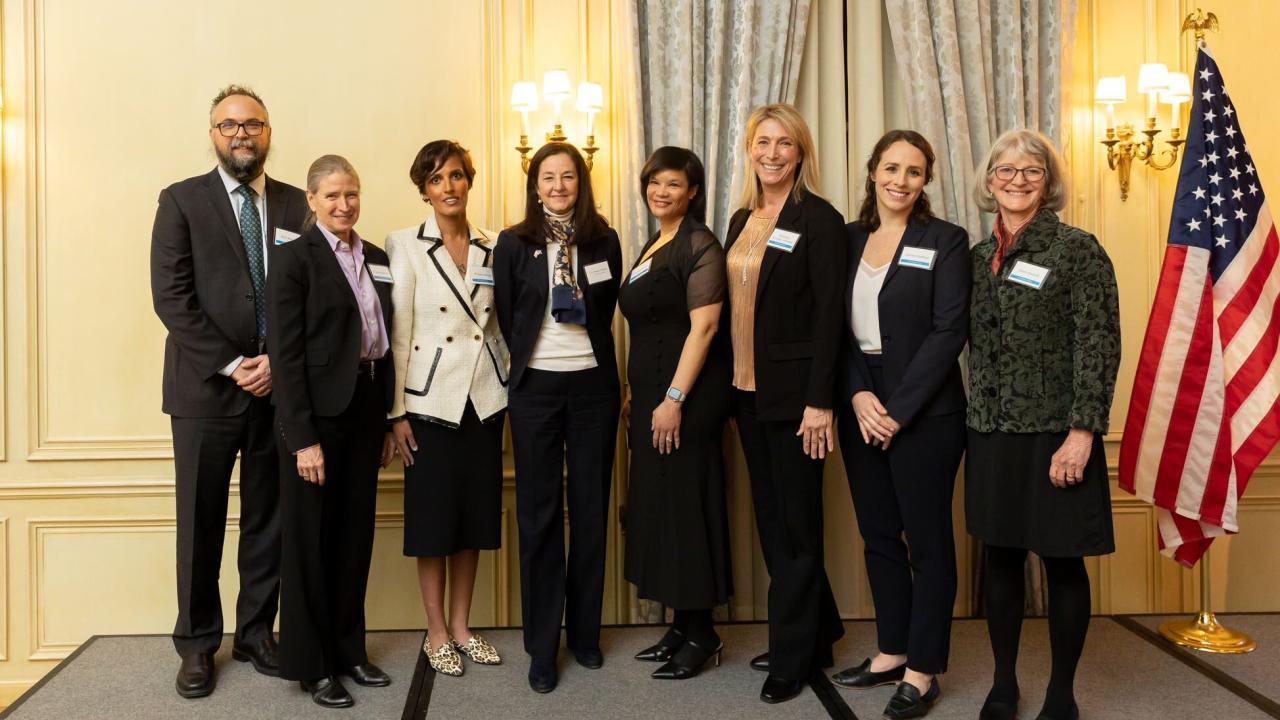
Interview with U.S. Science Envoy Dr. Christine K. Johnson

Photo by Don Preisler / UC Davis.
In December of 2022, Professor Christine K. Johnson was selected to serve as a U.S. Science Envoy by the U.S. Department of State. Established in 2011, the Science Envoy Program selects prominent U.S. scientists to travel around the world and build new connections with peer scientists in other countries, encourage policies to support science that benefits society, and forge new international collaborations. The 2023 cohort stands out from previous years as the State Department selected seven envoys, following a 3-year gap from the last cohort due to the pandemic. These scientists and engineers were selected with key global issues in mind, including Ocean Conservation and Marine Protected Areas; Illegal, Unreported, and Unregulated Fishing; Plastic Pollution; Quantum Information Science and Technology; Nature-Based Solutions to Climate Change; and the Nexus of Environmental Science and Indigenous Knowledge. Dr. Johnson was selected for her expertise in One Health and Zoonotic Diseases and brought to the position her strong support of science diplomacy and efforts by researchers and governments to work in tandem to develop science-backed policy. Over the past year, Dr. Johnson traveled with colleagues in the Department of State to the Lao PDR, Singapore, Costa Rica, Peru, Uganda, and Kenya. Reflecting back on her service, Dr. Johnson shared some of her experiences as a Science Envoy.
So, you might ask, what does an average day as a Science Envoy look like? Dr. Johnson explained that before the trips abroad, her schedule would be meticulously planned with local embassies, her day often starting before dawn and ending late in the night. From meeting with groups of graduate students and academics, to US Embassy staff and Ambassadors, to countries’ government officials and the United Nations, Dr. Johnson helped steward discussions around One Health collaborations and how disease emergence relates to biodiversity loss, climate change, and development of the landscape. The meetings were not specific to her research, but rather were meant to bring together people across the scientific community to find opportunities to collaborate. Round table discussions were especially helpful so everyone could talk about their perspectives and approaches to pressing issues. Aside from the science, Dr. Johnson was amazed by the many talents and vast expertise of the US diplomatic corps and their commitment to making the world better, as well as their fluency in many languages and cultures that make science exchange opportunities like this possible.
As for one of her favorite moments, Dr. Johnson highlighted when she hosted a lunch with early career faculty members, all women working in different disciplines in science and engineering at the university in Lao PDR. They were able to use this rare opportunity to connect with each other to discuss the issues that women in STEM face, which she noticed seem to be similar in many countries and are vital to understand so that we can support and improve diversity in science leadership. Faculty members were keen to connect afterwards so that they can continue to support each other in navigating these unique challenges.
When asked about why this position was meaningful to her, Dr. Johnson related that she had always been interested in how the U.S. engages with other countries to move science forward. In 2018, she participated in the AAVMC Faculty Policy Fellowship, which allowed her to work with legislators and federal agency leaders in Washington DC on the importance of international collaboration in pandemic preparedness. Emphasizing that even though it may be difficult for different countries to see eye-to-eye on some topics, she explained how science can establish common ground and shared goals. Science is a highly collaborative field that benefits from diverse perspectives, and scientists from different countries want to work together to solve the shared issues our world is facing.
Professor Johnson has a Science Envoy trip to the Arctic planned in January 2024, where she looks forward to learning more about ongoing research on climate change and discussing One Health with the indigenous communities. She’ll be visiting during the coldest part of the year when daylight hours are at a minimum and is excited to learn more about the unique challenges and opportunities for science in this environment, and hopefully catch an amazing view of the Northern Lights.
Read more about Dr. Christine K. Johnson’s appointment, the EpiCenter for Disease Dynamics, and the US Science Envoy Program.
